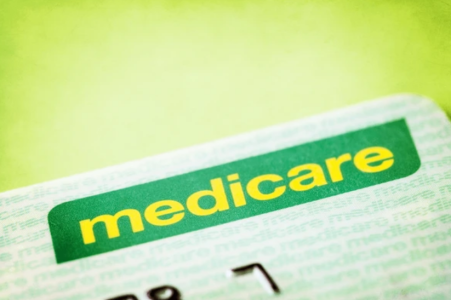Why every Aussie packs this powerful little card when travelling overseas
By
Gian T
- Replies 34
If you’re planning an overseas adventure—a long-awaited trip to see the grandkids in London, a river cruise through Europe, or a quick hop across the ditch to New Zealand—there’s one item you should never leave home without.
And no, it’s not your passport (though that’s a given!). It’s your humble little green Medicare card.
You might be surprised to learn that this unassuming piece of plastic could be your ticket to free or reduced-cost medical care in a number of countries around the world.
But how does it work, and what are the catches? Let’s break it down so you can travel with confidence and peace of mind.
Most of us know our Medicare card is essential for accessing healthcare here in Australia.
However, thanks to reciprocal healthcare agreements, it can also open doors to public hospitals and medical treatment in 11 countries.
That means if you fall ill or have an accident while travelling, you may be able to access emergency care or treatment for illnesses that can’t wait until you get home—without a massive bill at the end.
Australia has reciprocal healthcare agreements with several countries, including Belgium, Finland, Italy, Malta, the Netherlands, New Zealand, Norway, the Republic of Ireland, Slovenia, Sweden, and the United Kingdom.
In these destinations, you can present your Medicare card (and your passport) at public hospitals and, in many cases, receive medically necessary care either free or at a reduced cost.
Dean Long, CEO of the Australian Travel Industry Association, explains that the process is similar to visiting a public hospital at home.
If you’re a Medicare cardholder and an Australian citizen, you have rights to emergency care in these countries’ public systems.
However, it’s not always as simple as flashing your card.
The process can be a bit complicated, and not all medical practitioners overseas are familiar with the arrangement.
You may need to do a bit of explaining, and you’ll almost always need to show your passport as well.
While many of us have embraced the convenience of the digital Medicare card in the app, Services Australia recommends packing your physical card for overseas travel.
Not all overseas hospitals or clinics will accept the digital version, and you don’t want to be caught out in an emergency.
It’s important to understand that reciprocal healthcare agreements are not a blank cheque.
Coverage is generally limited to medically necessary care that can’t wait until you return home.
This usually includes emergency treatment and urgent care for sudden illnesses or injuries.
Routine check-ups, elective procedures, and private hospital care are typically not covered.
You may also be required to pay up front and claim reimbursement later, depending on the country and the circumstances.
As powerful as the Medicare card can be, it’s not a substitute for comprehensive travel insurance.
Both Dean Long and Services Australia stress that travel insurance is absolutely essential, even when visiting countries with reciprocal agreements.
There are a few key reasons why relying solely on reciprocal healthcare agreements isn’t enough.
These agreements don’t cover everything—services like ambulance transport, dental treatment, and private hospital care are often excluded.
You may also encounter out-of-pocket expenses, as some countries require payment upfront with partial reimbursement later.
Additionally, travel insurance offers broader protection, covering things like lost luggage, trip cancellations, and other unexpected events that healthcare agreements don’t include.
Having both your Medicare card and travel insurance gives you the best possible safety net while you’re away from home.
When travelling with your Medicare card, there are a few practical tips to keep in mind. Make sure to pack your physical Medicare card in a secure but easily accessible spot.
Always carry your passport, as it’s essential for proving your identity and eligibility. Before you depart, take time to research the specific healthcare agreement of your destination, as the details vary by country.
It’s also wise to keep a list of emergency contact numbers, including those for local hospitals and the nearest Australian embassy or consulate.
Many Aussies have found themselves in sticky situations overseas—broken bones in the UK, sudden illness in Italy, or a nasty fall in New Zealand.
In these cases, having a Medicare card has meant access to emergency care without the stress of a huge bill.
However, those who didn’t have travel insurance have sometimes faced unexpected costs for things like ambulances or follow-up care.
Your Medicare card is a 'powerful little' travel companion that could save you time, money, and stress if you need medical help overseas.
But remember, it’s not a magic wand—always pair it with good travel insurance for complete peace of mind.
 Have you ever used your Medicare card overseas? Did it save the day, or did you run into any surprises? Share your stories and tips in the comments below—we’d love to hear from you!
Have you ever used your Medicare card overseas? Did it save the day, or did you run into any surprises? Share your stories and tips in the comments below—we’d love to hear from you!
And no, it’s not your passport (though that’s a given!). It’s your humble little green Medicare card.
You might be surprised to learn that this unassuming piece of plastic could be your ticket to free or reduced-cost medical care in a number of countries around the world.
But how does it work, and what are the catches? Let’s break it down so you can travel with confidence and peace of mind.
Most of us know our Medicare card is essential for accessing healthcare here in Australia.
However, thanks to reciprocal healthcare agreements, it can also open doors to public hospitals and medical treatment in 11 countries.
That means if you fall ill or have an accident while travelling, you may be able to access emergency care or treatment for illnesses that can’t wait until you get home—without a massive bill at the end.
Australia has reciprocal healthcare agreements with several countries, including Belgium, Finland, Italy, Malta, the Netherlands, New Zealand, Norway, the Republic of Ireland, Slovenia, Sweden, and the United Kingdom.
In these destinations, you can present your Medicare card (and your passport) at public hospitals and, in many cases, receive medically necessary care either free or at a reduced cost.
Dean Long, CEO of the Australian Travel Industry Association, explains that the process is similar to visiting a public hospital at home.
If you’re a Medicare cardholder and an Australian citizen, you have rights to emergency care in these countries’ public systems.
However, it’s not always as simple as flashing your card.
The process can be a bit complicated, and not all medical practitioners overseas are familiar with the arrangement.
While many of us have embraced the convenience of the digital Medicare card in the app, Services Australia recommends packing your physical card for overseas travel.
Not all overseas hospitals or clinics will accept the digital version, and you don’t want to be caught out in an emergency.
It’s important to understand that reciprocal healthcare agreements are not a blank cheque.
Coverage is generally limited to medically necessary care that can’t wait until you return home.
This usually includes emergency treatment and urgent care for sudden illnesses or injuries.
You may also be required to pay up front and claim reimbursement later, depending on the country and the circumstances.
As powerful as the Medicare card can be, it’s not a substitute for comprehensive travel insurance.
Both Dean Long and Services Australia stress that travel insurance is absolutely essential, even when visiting countries with reciprocal agreements.
There are a few key reasons why relying solely on reciprocal healthcare agreements isn’t enough.
These agreements don’t cover everything—services like ambulance transport, dental treatment, and private hospital care are often excluded.
Additionally, travel insurance offers broader protection, covering things like lost luggage, trip cancellations, and other unexpected events that healthcare agreements don’t include.
Having both your Medicare card and travel insurance gives you the best possible safety net while you’re away from home.
When travelling with your Medicare card, there are a few practical tips to keep in mind. Make sure to pack your physical Medicare card in a secure but easily accessible spot.
Always carry your passport, as it’s essential for proving your identity and eligibility. Before you depart, take time to research the specific healthcare agreement of your destination, as the details vary by country.
It’s also wise to keep a list of emergency contact numbers, including those for local hospitals and the nearest Australian embassy or consulate.
In these cases, having a Medicare card has meant access to emergency care without the stress of a huge bill.
However, those who didn’t have travel insurance have sometimes faced unexpected costs for things like ambulances or follow-up care.
Your Medicare card is a 'powerful little' travel companion that could save you time, money, and stress if you need medical help overseas.
But remember, it’s not a magic wand—always pair it with good travel insurance for complete peace of mind.
Key Takeaways
- Aussie travellers are urged to take their physical Medicare card with them when visiting overseas countries that have reciprocal healthcare agreements with Australia.
- There are 11 countries where Australians can access some publicly funded medical care, including emergency treatment, by presenting their Medicare card and passport.
- Experts warn that using a Medicare card overseas can be complicated, with various restrictions and requirements, so it’s important to research what’s covered before you travel.
- Travel insurance is still strongly recommended, even when visiting countries with reciprocal healthcare agreements, as Medicare does not cover all medical costs or services overseas.








